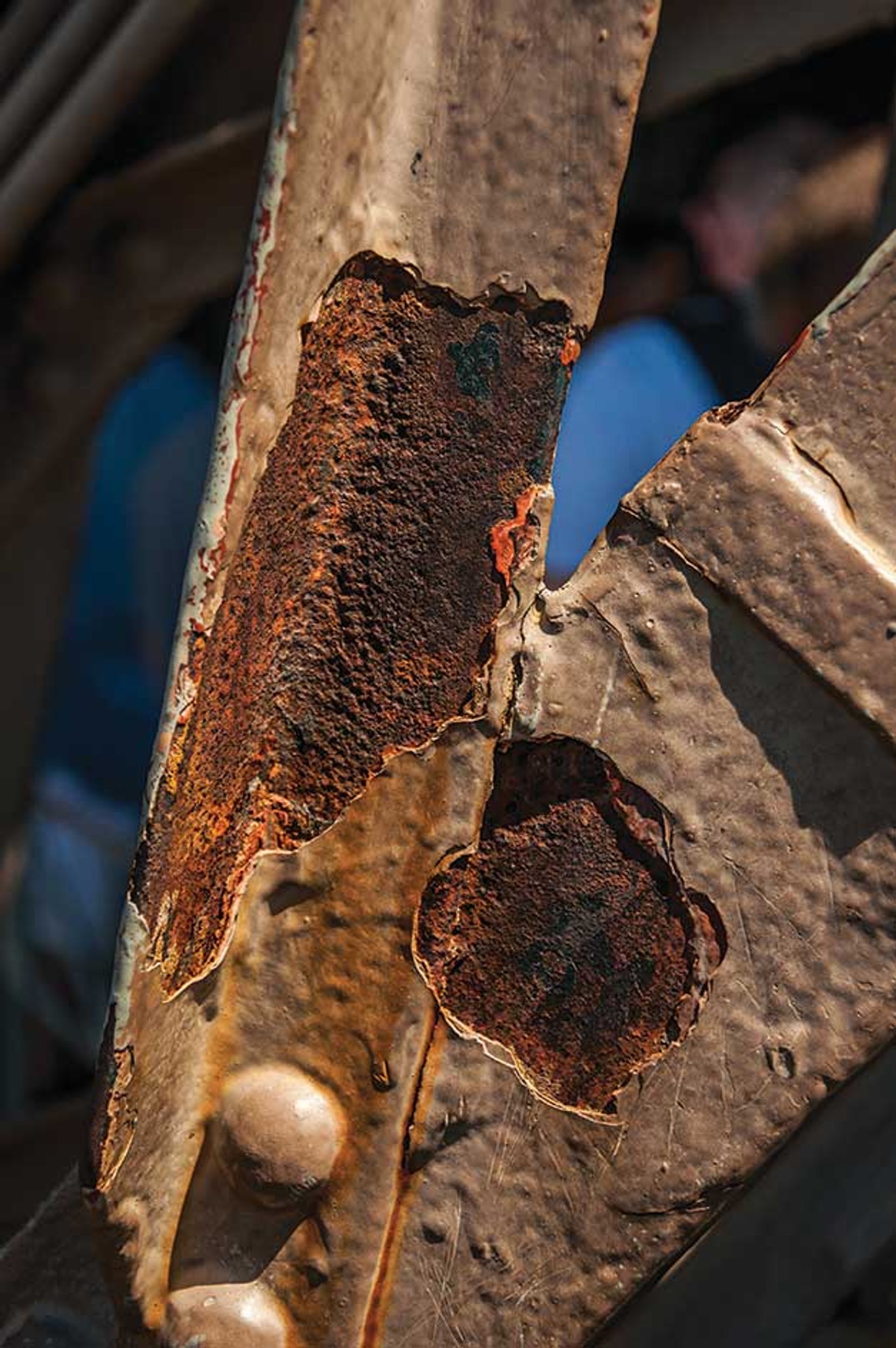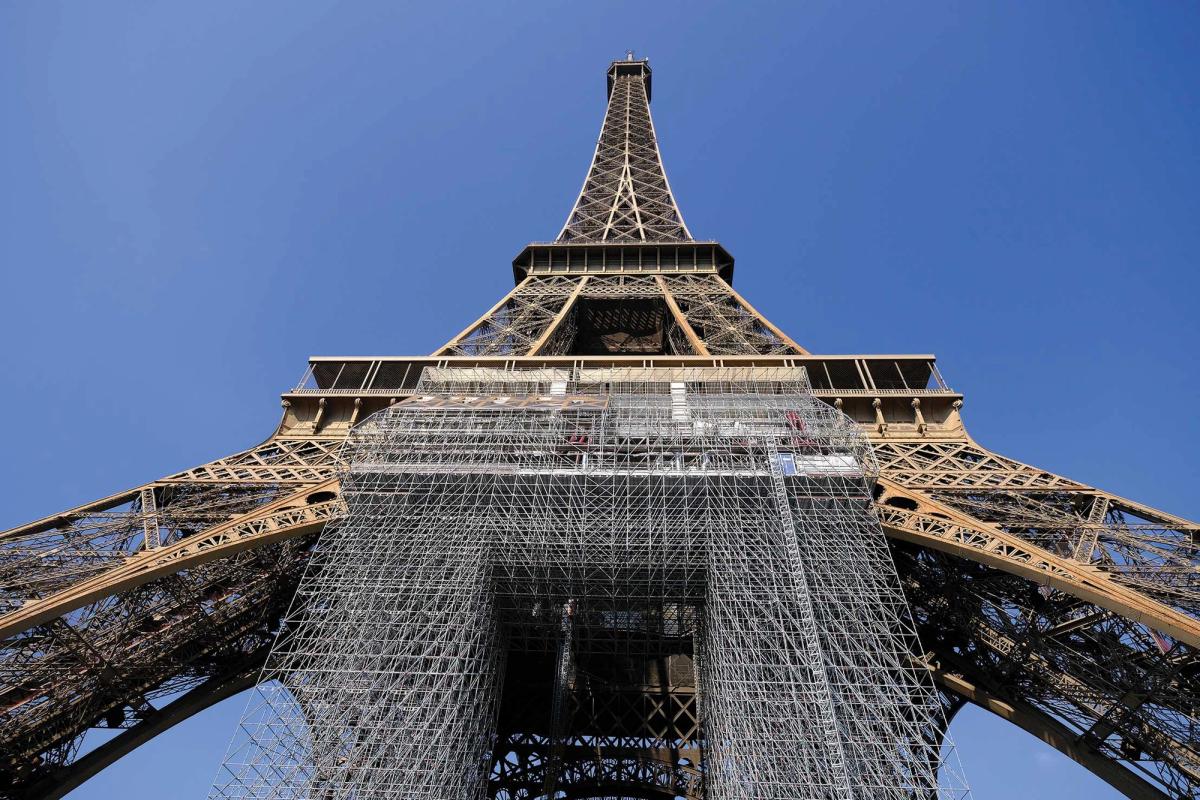Criticised by writers and artists during its construction between 1887 and 1889 as “useless and monstrous, disgracing the beauty of Paris”, the Eiffel Tower is again sparking controversy—but for opposite reasons. Now, union workers and the national government claim that the city of Paris is failing to properly maintain it, putting the much-loved national icon in peril.
In February, a strike closed the site for six days. It was the second time that staff had walked off the job since 27 December, the date marking the centenary of the death of the tower’s creator Gustave Eiffel, and came at a time when the landmark attracted an average of 20,000 visitors per day. The unions have threatened to resume their action during the Olympic Games this summer, when the capital is expected to welcome more than 15 million tourists.
Rust taking hold
“Employees see day-by-day that the tower is rusting, and that [this] could become irreversible,” says the union spokesman Alexandre Leborgne. Eiffel had stipulated that the monument be restored and repainted every seven years. But the last round of renovations was completed 14 years ago. Work was initiated in 2019 but was delayed because of the pandemic. The presence of worrying levels of lead in the original paint also meant it had to be stripped before repainting could begin.
To date, only 30% of the tower has been repainted. Adding more than 100 weekly operations to monitor the lead increased annual running costs from €50m to €92m—and may reach a staggering €130m. The unions have also denounced the state of infrastructure, which sees tourists with tickets still queuing for up to three hours.
Paris’s mayor is travelling around the world but has left the symbol of France in a state of disrepair
The problems are largely due to a feud between the city council and the company contracted to run the Eiffel Tower site. The company lost €100m in 2020 and 2021, when the government ordered a one-year Covid-related lock-down of cultural venues. It is now considering raising ticket prices during the Olympic Games by up to 20% to recoup some of those losses.
To end the February strike, the company pledged to invest €380m in maintenance and restoration until 2031 and to balance its budget in 2025. But the unions are sceptical. The contract signed with the city foresees an increase in fees owed to the council from €16m to €50m that year, an amount the unions consider “unrealistic and jeopardising the maintenance budget”. They negotiated a reduction of that figure to €31-34m, which still represents 25% of the monument’s revenue.
“The whole system is out of balance,” says a representative, saying that “in nine years the company only made a profit twice, in 2014 and 2018”. In response to their criticisms, the deputy mayor of Paris, Emmanuel Grégoire, posted on X, formerly Twitter, that “the Eiffel tower is a jewel, which is in a very good state, and the council will continue to invest in its renovation.”

A rusty joint on the tower
Photo © Celli07
However, the row has spilled over into the national arena. “The management of the Eiffel Tower is disastrous,” said the French tourism minister Olivia Grégoire in an interview with Radio Sud. “Paris’s mayor Anne Hidalgo is travelling around the world but has left the symbol of France in a state of disrepair,” she added. She also denounced the derelict state of the park surrounding the landmark and the “insecurity around the tower”, citing the return of “pickpockets and bonneteau [card trick] players”. The deputy mayor for tourism Frédéric Hocquard responded to her comments saying that these three-card trick players “are almost part of the landscape and, if you don’t see a bonneteau player or a hawker there, something would be missing”.
Security concerns
Nonetheless, Hocquard promised that police presence would be reinforced during the Olympic Games. But the president of the site’s management company, Jean-François Martins, asked for “permanent police protection”, as “insecurity has become a real problem for visitors and employees”.
France’s new culture minister, Rachida Dati, has also jumped into the fray. Posting on X, she called for the Eiffel Tower and its park to be classified as a historical monument, which “would allow the state to order emergency works.” She added: “Today its protection is insufficient”.


